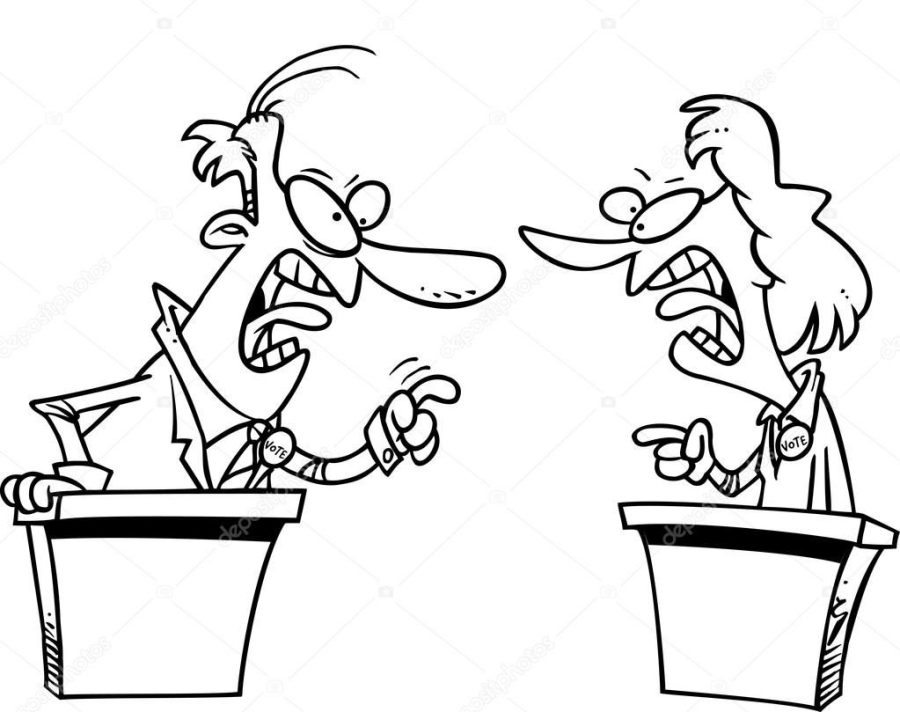Rejecting the Culture of Outrage in Intellectual Debate
January 31, 2018
The irony in contemporary debate reflects a tendency to attack the ‘other side’ on a basis of character rather than intellectual belief. As Americans, I believe we must tread forward carefully, in times where both sides increasingly demand the other be silenced. For example, Western universities can be identified as institutions that encourage open debate but in practice do not.
Specifically, Berkeley College has a historical value for freedom of speech. While this college may tout or take pride in its Vietnam-era “freedom of speech” movement, it didn’t take an expert bystander to notice that this had been completely commandeered and ended the last few years. When a rabble-rouser speaker by the name of Milo Yiannopoulos was invited to speak, and later conservative-commentator Ann Coulter, the stage of violence was nearly inevitable. Armed mobs donned in black, adopted the name “Antifa,” and reigned havoc, shutting the event down. Subsequently, the other side mobilized and a number of gang-style fights took place in the streets. One could say the sides were not particularly “keen” on having rational, open debate.
A more recent example occurred in Laurier University in Canada. A graduate student, working as a course TA, recorded a harsh rebuking from her superiors on audio, when she showed her class a clip of a debate that occurred on a public television station. Her superiors argued that she created an “unsafe learning environment” for some of her students and went against the revised C-16 Canadian Human Rights Code. While many disagreed with her decision to present the debate, which showed two sides of a controversial debate occurring in that country, I find it alarming the number of instances where academia across North America appear to be stifling debate from both sides. I believe American universities should adopt a degree of self-awareness and create an intellectual environment in which ideas and debates can happen in an open, undisturbed forum. If intervention occurs to end debate, you can be sure something isn’t right.
On a more national scale, the United Kingdom comes to mind regarding free speech. Many Americans are oblivious to the fact that many European countries do not guarantee American-style freedom of speech, despite the tendency to assume so. In the United States, you are guaranteed free speech (preferentially in an organized manner or venue), minus cases of threatening “imminent harm” on a person or property. In the United Kingdom, you can be arrested for “hate speech,” which I define as a rather subjective charge to begin with, and actually thrown in prison for a length of time. In Germany people are censoring various sites and channels that go against the government’s code of conduct, not to mention the political standing of their current government. The point to take away here is that even in the land where enlightened thinkers established such pillars as “freedom of speech” or civil rights for citizens, they do not guarantee the level of “freedom of speech” that American citizens enjoy today.
We are living through a time of cultural victimhood and political aggression, in which the opposing side is painted as morally wrong instead of intellectually wrong. Because one can clamor that the other side is “mean” or “bad”, a period of near anti-intellectualism has developed. The more rational debate collapses, and the more “weaponized victimhood” is used to stifle discussion, the more we can expect the privileges of free and open speech to end. As an American citizen, I believe we should defend each and our own freedoms to open speech and discussion. I recommend we reject the culture of outrage, and act more rational and civic in our intellectual debates.











